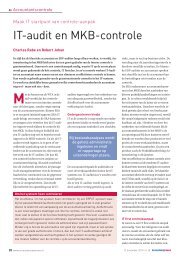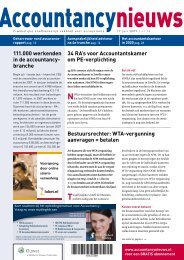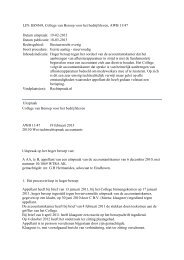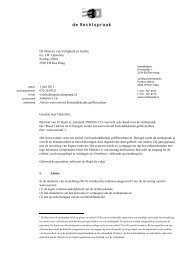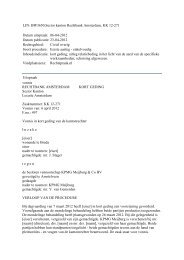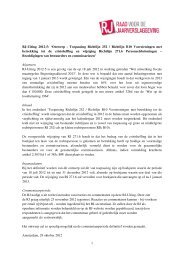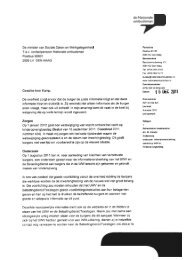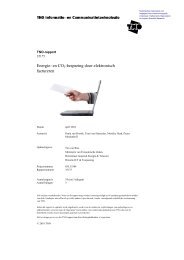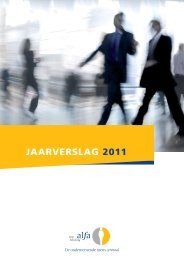Appetite for change - Accountancy Nieuws
Appetite for change - Accountancy Nieuws
Appetite for change - Accountancy Nieuws
You also want an ePaper? Increase the reach of your titles
YUMPU automatically turns print PDFs into web optimized ePapers that Google loves.
Section 4How can policies find support?Conflicting policies can become perverse incentives thatreward the status quo over more environmentally-friendlybehaviour. In the US, the Environmental Law Instituteestimates that fossils fuels received approximately USD 70billion in direct spending and tax relief in the period from2002 through to 2008. During the same period, traditionalrenewable fuels received about USD 12 billion, and thecontroversial fuel corn ethanol received just under USD17 billion. 10 Outside of the Organisation <strong>for</strong> EconomicCo-operation & Development (OECD) countries, Chineseincentives <strong>for</strong> renewable energy, particularly wind and solarpower, have fostered a rapid build-up in capacity, yet alongwith Russia and India, China remains one of the world’slargest subsidisers of fossil fuels. 11Business leaders bear some responsibility <strong>for</strong> thecontradictions. Generally, they will seek exceptions,promote competition between governments, and protectthe status quo when it benefits their stakeholders. Businessexecutives do, however, strongly support the consistentimplementation of environmental policies across regions andover the long term. Particularly as operations spread acrossborders, legal differences often create more disadvantagesthan advantages.Chris Lenon, Global Tax Director at Rio Tinto explains, “Weapply our standards on a global basis and we stick to thesestandards. That’s a decision that the Group has taken…. Wewant there to be one measure of what a tonne of carbon is“We apply our standards on a global basis and we stickto these standards. That’s a decision that the Grouphas taken…. We want there to be one measure of whata tonne of carbon is because that way it will be easierto comply and to operate on a global basis on a levelplaying field.”Chris Lenon, Global Tax Director,Rio Tintobecause that way it will be easier to comply and to operate ona global basis on a level playing field. We seek certainty andconsistency. Our fundamental issue is that our investmentsare very long-term investments, so if you can’t predict whata potentially significant cost is going to be, over the life of aproject, it’s difficult to evaluate any project.”A lack of coordination within and between governmentscreates uncertainty about long-term investments and otherbusiness decisions that could be affected by environmentalpolicies. Clearing the uncertainty is critical <strong>for</strong> the transitionto a low carbon economy. The utilities sector, <strong>for</strong> example,needs to plan investment in cleaner generation and muchneededpower infrastructure on time-scales of up to a decadeor more.10Adenkike Adeyeye, James Barrett, Jordan Diamond, Lisa Goldman, John Pendergrass and Daniel Schramm, “Estimating US Government Subsidies to Energy Sources: 2002-2008,” Environmental Law Institute, September 200911The Economist, “A long game,” 5-11 December 2009. International Energy Agency, “World Outlook: 2008 Edition”24 <strong>Appetite</strong> <strong>for</strong> <strong>change</strong>. PricewaterhouseCoopers.



